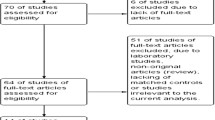Abstract
The aim of this study was to analyze the clinical significance of reversion-inducing-cysteine-rich protein with Kazal motifs (RECK) promoter methylation in pancreatic ductal adenocarcinoma (PDA). Methylation-specific polymerase chain reaction was used to examine the promoter methylation status of RECK in 60 pairs of PDA tissue samples and adjacent non-cancerous tissue samples. Statistical analyses were applied to test the associations between RECK promoter methylation status, clinicopathologic factors, and prognosis. The rate of RECK promoter methylation was significantly higher in PDA tissues than in adjacent non-cancerous tissues (P < 0.001). RECK methylation status was significantly associated with clinical stage (P = 0.017), histological differentiation (P = 0.046), and lymph node metastasis (P = 0.003), but was not associated with gender, age, and tumor location (all P > 0.05). Additionally, RECK promoter methylation is associated with malignant behavior and poor prognosis. In conclusion, determination of RECK promoter methylation status in tumor tissues may assist in the identification of patients who require aggressive postoperative intervention in order to improve prognosis.



Similar content being viewed by others
References
Taghavi A, Fazeli Z, Vahedi M, Baghestani AR, Zali MR, Pourhoseingholi MA. Pancreatic cancer mortality and misclassification—Bayesian analysis. Asian Pac J Cancer Prev. 2011;12:2271–4.
Ferrone CR, Pieretti-Vanmarcke R, Bloom JP, Zheng H, Szymonifka J, Wargo JA, et al. Pancreatic ductal adenocarcinoma: long-term survival does not equal cure. Surgery. 2012;152:S43–9. doi:10.1016/j.surg.2012.05.020.
Winter JM, Yeo CJ, Brody JR. Diagnostic, prognostic, and predictive biomarkers in pancreatic cancer. J Surg Oncol. 2013;107:15–22. doi:10.1002/jso.23192.
Sharma C, Eltawil KM, Renfrew PD, Walsh MJ, Molinari M. Advances in diagnosis, treatment and palliation of pancreatic carcinoma: 1990–2010. World J Gastroenterol. 2011;17:867–97. doi:10.3748/wjg.v17.i7.867.
Takahashi C, Sheng Z, Horan TP, Kitayama H, Maki M, Hitomi K, et al. Regulation of matrix metalloproteinase-9 and inhibition of tumor invasion by the membrane-anchored glycoprotein RECK. Proc Natl Acad Sci U S A. 1998;95:13221–6. doi:10.1073/pnas.95.22.13221.
Oh J, Takahashi R, Kondo S, Mizoguchi A, Adachi E, Sasahara RM, et al. The membrane-anchored MMP inhibitor RECK is a key regulator of extracellular matrix integrity and angiogenesis. Cell. 2001;107:789–800.
Noda M, Oh J, Takahashi R, Kondo S, Kitayama H, Takahashi C. RECK: a novel suppressor of malignancy linking oncogenic signaling to extracellular matrix remodeling. Cancer Metastasis Rev. 2003;22:167–75.
Deng YF, Zhou DN, Ye CS, Zeng L, Yin P. Aberrant expression levels of MTA1 and RECK in nasopharyngeal carcinoma: association with metastasis, recurrence, and prognosis. Ann Otol Rhinol Laryngol. 2012;121:457–65.
Chen Y, Tseng SH. The potential of RECK inducers as antitumor agents for glioma. Anticancer Res. 2012;32:2991–8.
Wittschieber D, Stenzinger A, Klauschen F, Stephan C, Jung K, Erbersdobler A, et al. Decreased RECK and increased EMMPRIN expression in urothelial carcinoma of the bladder are associated with tumor aggressiveness. Pathobiology. 2011;78:123–31. doi:10.1159/000323563.
Pesta M, Kulda V, Topolcan O, Safranek J, Vrzalova J, Cerny R, et al. Significance of methylation status and the expression of RECK mRNA in lung tissue of patients with NSCLC. Anticancer Res. 2009;29:4535–9.
Song SY, Son HJ, Nam E, Rhee JC, Park C. Expression of reversion-inducing-cysteine-rich protein with Kazal motifs (RECK) as a prognostic indicator in gastric cancer. Eur J Cancer. 2006;42:101–8.
Zhang Y, Cheng S, Zhang G, Ma W, Liu Y, Zhao R, et al. Low expression of RECK indicates a shorter survival for patients with invasive breast cancer. Cancer Sci. 2012;103(6):1084–9. doi:10.1111/j.1349-7006.2012.02265.x.
Masui T, Doi R, Koshiba T, Fujimoto K, Tsuji S, Nakajima S, et al. RECK expression in pancreatic cancer: its correlation with lower invasiveness and better prognosis. Clin Cancer Res. 2003;9:1779–84.
Zhang C, Ling Y, Zhang C, Xu Y, Gao L, Li R, et al. The silencing of RECK gene is associated with promoter hypermethylation and poor survival in hepatocellular carcinoma. Int J Biol Sci. 2012;8:451–8. doi:10.7150/ijbs.4038.
Rabien A, Burkhardt M, Jung M, Fritzsche F, Ringsdorf M, Schicktanz H, et al. Decreased RECK expression indicating proteolytic imbalance in prostate cancer is associated with higher tumor aggressiveness and risk of prostate-specific antigen relapse after radical prostatectomy. Eur Urol. 2007;51:1259–66.
Du YY, Dai DQ, Yang Z. Role of RECK methylation in gastric cancer and its clinical significance. World J Gastroenterol. 2010;16:904–8. doi:10.3748/wjg.v16.i7.904.
Jin Z, Mori Y, Yang J, Sato F, Ito T, Cheng Y, et al. Hypermethylation of the nel-like 1 gene is a common and early event and is associated with poor prognosis in early-stage esophageal adenocarcinoma. Oncogene. 2007;26:6332–40. doi:10.1038/sj.onc.1210461.
Sun D, Zhang Z, Van do N, Huang G, Ernberg I, Hu L. Aberrant methylation of CDH13 gene in nasopharyngeal carcinoma could serve as a potential diagnostic biomarker. Oral Oncol. 2007;43:82–7.
Brock MV, Gou M, Akiyama Y, Muller A, Wu TT, Montgomery E, et al. Prognostic importance of promoter hypermethylation of multiple genes in esophageal adenocarcinoma. Clin Cancer Res. 2003;9:2912–9.
Sobin LH, Wittekind CH. TNM classification of malignant tumours. 6th ed. New York, NY: Wiley-Liss; 2002. p. 199–202.
McCleary-Wheeler AL, Lomberk GA, Weiss FU, Schneider G, Fabbri M, Poshusta TL, et al. Insights into the epigenetic mechanisms controlling pancreatic carcinogenesis. Cancer Lett. 2013;328:212–21. doi:10.1016/j.canlet.2012.10.005.
Seligson DB, Horvath S, McBrian MA, Mah V, Yu H, Tze S, et al. Global levels of histone modifications predict prognosis in different cancers. Am J Pathol. 2009;174:1619–28. doi:10.2353/ajpath.2009.080874.
Tinari N, De Tursi M, Grassadonia A, Zilli M, Stuppia L, Iacobelli S, et al. An epigenetic approach to pancreatic cancer treatment: the prospective role of histone deacetylase inhibitors. Curr Cancer Drug Targets. 2012;12:439–52.
Conflicts of interest
None
Author information
Authors and Affiliations
Corresponding author
Additional information
Xiong-Xiong Lu and Shu-Min Zhang contributed to this paper equally.
Rights and permissions
About this article
Cite this article
Lu, XX., Zhang, SM., Fang, Y. et al. Clinical significance of RECK promoter methylation in pancreatic ductal adenocarcinoma. Tumor Biol. 34, 3339–3343 (2013). https://doi.org/10.1007/s13277-013-0903-z
Received:
Accepted:
Published:
Issue Date:
DOI: https://doi.org/10.1007/s13277-013-0903-z




